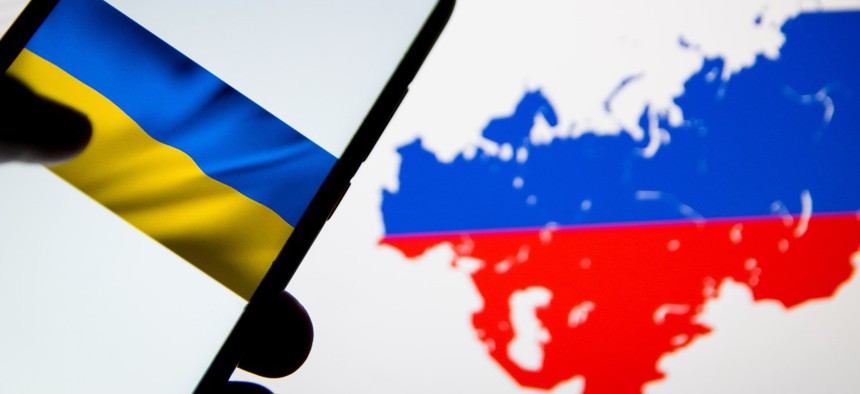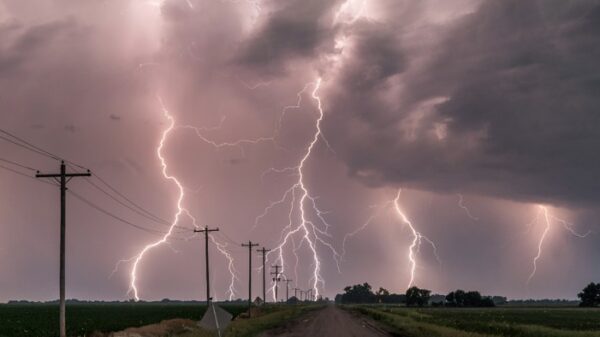Cyber activity is focused heavily on eastern Europe.
Russia’s invasion of Ukraine is not just capturing the world’s attention—it’s drawing a massive amount of activity in cyberspace.
Nearly 9 in 10 cyberattacks currently occurring worldwide are targeting Russia or Ukraine, according to data from California-based cybersecurity firm Imperva.
The firm’s Cyber Threat Attack Map, which measures web traffic and applications attacks, indicates 61% of the more than six billion potential global cyberattacks from March 7-8 targeted Russia, while 23% targeted Ukraine. The United States was the third-most targeted country over the same 24-hour time period, accounting for 6% of threat activity faced.
There have been several high-profile cyberattacks during the invasion thus far: Russia crippled Ukrainian government websites early in the invasion, while hacking collective Anonymous announced it hacked into Russian television networks. Russian officials also opined that any hacking of Russian satellite networks would amount to a declaration of war, prompting a response from U.S. officials.
Distributed denial of service, or DDoS attacks, comprise about 90% of ongoing potential cyberattacks, according to Imperva. DDoS attacks are attempts to disrupt normal traffic to a server, service or network, sometimes undertaken with hijacked computers or bot networks.
About three in four of the cyberattacks targeted financial services, while another 20% targeted business networks.
“Cyberwarfare is becoming a reality as attacks are used to disrupt essential services. Hackers took control of banking, government, military websites, even TV channels to damage the usual operations of these entities,” said Atlas VPN’s Vilius Kardelis. “The battles in the digital world can have a significant impact on communications and propaganda distribution on both sides.”



























